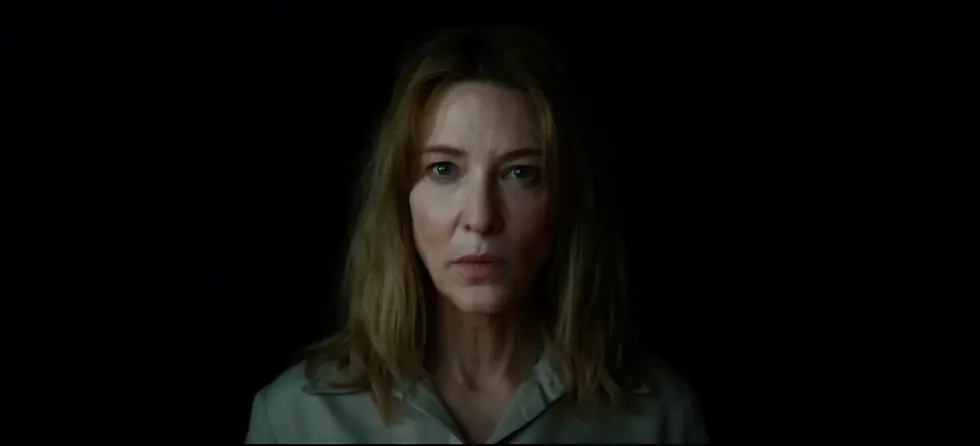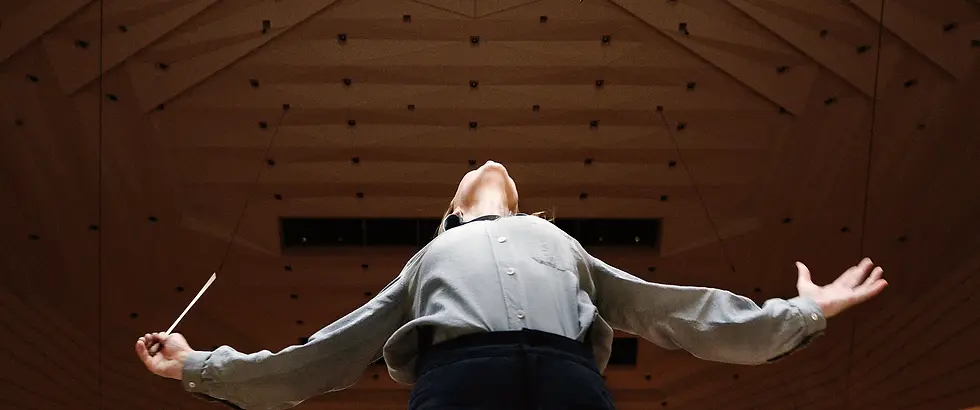Come and Dance the Mask with 'Tár'
- August Hammel

- Oct 28, 2022
- 4 min read
What does the world gain when an abusive genius falls from grace? What do we lose? Why do we care at all? Todd Field takes every question that’s been posed around celebrity culture and its pitfalls in the last few years and turns them on their head in favor of writing the funniest movie he could.

In Tár, Cate Blanchett plays the titular character, a world-renowned composer and conductor whose murky misdeeds come to light as her career is about to reach its peak. As a story, the need for complication is thin and thankfully so because Field is more enamored with the comedy of devastation than any insight he could provide on the demands of the culture. Poking and prodding, he maintains his stance on the character and lets her spout her visions, dealing away with any didacticism. In bypassing any moral high ground and letting the incomparable Blanchett take the reins of his vision, he creates an incisive epic about how delightful it is to watch people scramble for the head of the table when it’s already set.
What Field has found in the 16 years since his last movie is an ostensible sense of humor. In what is maybe the best satire of the decade so far, Field’s tone plays as a lampooning of the world of high art. Anyone who’s existed in these spaces before is ever so familiar with the cadence and setting and pomp and circumstance of these people and their little offhand references.

They may regard them with reverence and disdain, yet those people are all the more satisfied either way with their knowledge and superiority above the others. It is no mistake that the last example listed as peers in Tár’s EGOT status is Mel Brooks. Field doesn’t actively condemn his characters with cinematic consequences, however, and that’s where the comedy shines. By not being obvious or corrective, Field lets these people be their own parody of themselves.
In two early scenes, Field lets us in on the secret that Tár has bought into her own genius to the extent of her detriment. Both scenes establish her as an institutional figure to be respected, with the snickers from a film audience standing in for the world’s silence. Her introductory sit-down with Adam Gopnik is the immediate introduction, her public persona writ large and carefully constructed. However, in her later class at Juilliard, the audience gets the full scope.

Blanchett’s centerpiece is the takedown of a visibly insecure Gen Z kid, one defined by a self-awareness without the emotional maturity to properly be secure in it. Tár is much the same way, though different in that whatever the case, she holds a disdain for both sides of the coin. They play no part in her transactional lifestyle. She revels in not only her point of superiority, wherein she is correct, but how exactly she landed there. Her victory here is not among her students or herself but with the very fact that she has succeeded in achieving yet another position of power where she can dominate. An ultimate transactional experience, that of higher education. Paying money for knowledge is where she is comfortable, in that no man’s land of the free market where she can give her genius for money or love or power and she can leverage her position against others.
Finding the feminism within allowing this woman to buy her own brilliance and have us laugh at it not because she is a simpleton – she is very clearly a bonafide genius – but because she cannot just accept it. She is someone whose desire for power leaves nothing but havoc in its wake. The feminism here isn’t found in letting a woman be monstrous, but rather damning the systems that have built the world for her ego.

Her mentors are all men. Bernstein is said to have been her teacher, Mahler is her idol, and she competes against many including Mark Strong in a delightful turn as a wealthy dilettante who, as always (and like Tár) cannot be happy with his success alone. He must chase artistic validation as she must chase power. Tár gets no more pleasure than at times where she gets to leverage her intelligence against his money, knowing herself better than him despite fiending for his wealth just as he does her genius. These circles never realize that their chase for each other will never end, neither do the laughs.
Mired in hypocrisy and ambition, the characters of Tár’s world cannot stop each other from clawing the others’ eyes out no matter the cost. They can pay for it later. Even the kids have a spat solved by forcing the hands of power in their favor. Manipulation is a tool in the world of the instrumental and everyone has to take both as seriously before putting one foot in front of the next. Finding the comedy here is easy, but answering the questions from the culture is impossible, so Field dresses up the latter with the former and lets his audiences discern what he’s trying to say while he’s too busy laughing about it. Closing out a saga about a character as prolific as Tár is a remarkable feat, yet he lands a body blow of an ending with such ease that every audience should finally match his vantage point. She’s Tár!

You can see TÁR at the Athena Cinema starting on October 27.
-August



Kommentare